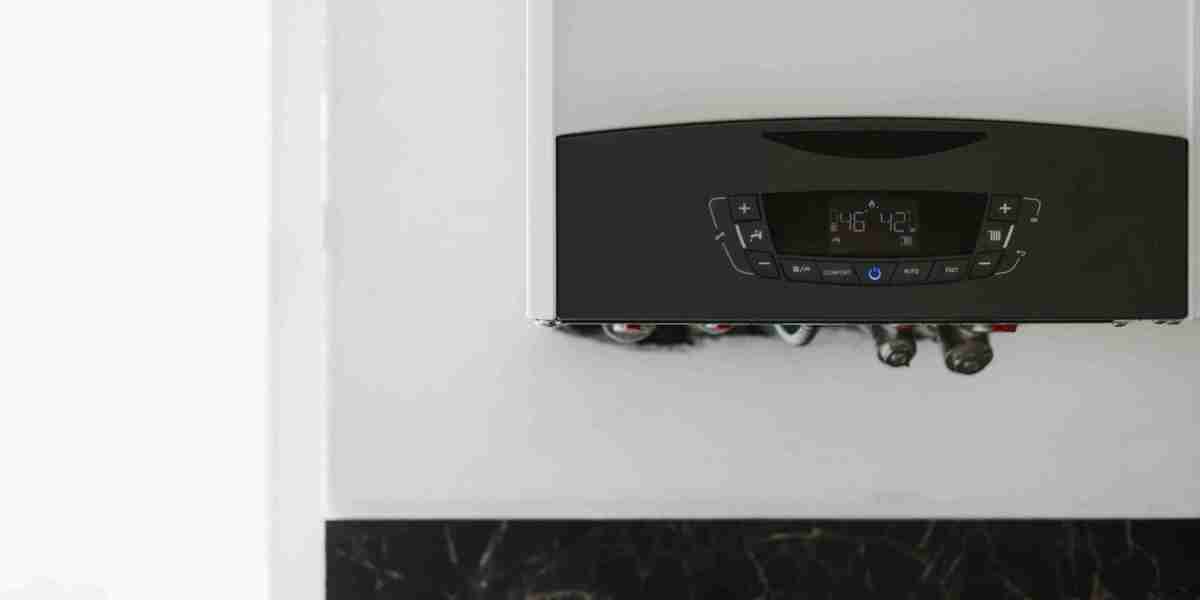A Gas Safety Certificate is a legal requirement for landlords. This is essential to ensure your tenants' safety and health, and to prolong the life of your appliances.
 Your engineer will examine the safety of your gas appliances and pipes. They will then issue the certification. If an appliance is deemed as immediately dangerous (ID) or At Risk (AR), it must be replaced as soon as possible.
Your engineer will examine the safety of your gas appliances and pipes. They will then issue the certification. If an appliance is deemed as immediately dangerous (ID) or At Risk (AR), it must be replaced as soon as possible.Ventilation
As part of a gas safety inspection your engineer will check the ventilation passages of every appliance to make sure they are free of blockages. This is essential to avoid the build-up of harmful gasses within your home, like carbon monoxide. Carbon monoxide is a hazardous gas that can poison you if it builds up. Your engineer will check it frequently when they are on the property.
They will also check flues and chimneys to ensure they are clear of obstructions, sealed correctly, and able discharge gases in a consistent manner. Carbon monoxide, a toxic gas that is colorless and odourless, will be examined in the home. It can become dangerously accumulated when not eliminated. This is the reason it's important to have your appliances serviced and checked annually by a Gas Safe registered engineer.
In addition to these tests, your gas engineer will examine the safety device for flame failure of each appliance, and verify that it is working correctly. The device is designed to cut off the gas supply in the event that the flame goes out and to prevent the appliance from overheating. Every landlord should make sure that this safety feature functions correctly.
Your gas engineer will also check that all fittings, valves and pressure regulators are in good condition and secure. They will verify that the gas type being used is the one that was specified when your appliance was installed.
Your gas engineer will note any issues on the CP12 and recommend ways to address them. This document is essential and should be kept in your files in order to prove that your gas appliances were tested and are safe for use. Gas safety checks are important for a number of reasons. They assist you in meet legal requirements and promote an environment that is healthy. If you're not getting your CP12 certificates renewed in time, it could end up costing you and your tenants in the end.
Pressure
Carbon monoxide is a risk in the event that an appliance that burns gas has not been installed correctly. To prevent this, experts make sure that the passages for ventilation are free of blockages or obstructions, and that the appliances are properly burning. Engineers will also make sure that the gases are properly released and do not cause a buildup within the house.
If an engineer detects an issue with the appliance, it could be required to shut off the gas supply. This will be noted on the gas safety certificate and any affected tenants are advised not to use the appliance until it is repaired. Landlords are required to keep a record of the repairs made and renew their gas certificates on a regular basis. It is best to have these checks carried out by a Gas Safe registered engineer, who will carry out the necessary tests and issue a certificate.
Gas safety certificates, or CP12s are crucial legal documents that provide information about the home and appliances which were inspected. It includes the date of the inspection, the address of the property and the name and Gas Safe registration number of the engineer who conducted it. It also lists any issues discovered and provide the steps to be taken to rectify them.
The CP12 also identifies if the appliances tested are sealed or open vented. It will note the gas pressure supply and if the cistern for expansion and feed has a ball valve that is functioning properly. The engineer will also check the efficiency of the combustion process and determine whether the appliance is displaying signs of carbon monoxide.
While some landlords might believe that getting the gas safety certificate unnecessary, it's actually a legal requirement in the UK. Additionally, it helps prevent any accidents or injuries caused by gas appliances that are not working properly and creates the safety of the tenants. It is also useful when letting or selling properties, as it can demonstrate that the property is up to the safety standards required. Online services that provide an array of Gas Safe registered Engineers are the most efficient method to arrange for a gas safety inspection. You can simply enter the required information and receive an instant estimate on your gas safety certificate now.
Flues
A flue can be a hollow assembly like a pipe or constructed-up tile pipe or any other noncombustible material that are used to expel smoke, exhaust fumes, or fumes produced by heating components like boilers or hot water heaters. The natural draft generated by the flue is crucial to the proper functioning of these types of appliances, since the gas needs to escape from the inside of the appliance and not recirculate within the structure. A gas safety engineer will inspect the flue's exterior and interior to make sure it is properly sealed and has no obstructions.
A licensed engineer will check the pipes and valves that connect to every gas appliance connected to the flues. This is because if these connections aren't in line with accepted standards, there may be gas leaks that are dangerous that may not be detected. It is also crucial to ensure that the gas supply and outlet of every appliance are in good condition, to stop any buildups of carbon monoxide from developing.
A certified engineer will record any defects or faults with the gas installation, its appliances and their appliances on the certificate of gas safety. When they return to the home they will be able to fix the problems and bring the house up to standard. Landlords are legally required to obtain an official gas safety certificate for any property they lease out, so that they can ensure that their tenants are protected from any kind of heating or gas-related accident.
Homeowners are not required by law to possess an official gas safety certificate what is checked safety certificate However, many choose to obtain them regardless because of the benefits they provide. They include peace of mind and the assurance that their heating systems are operating properly. Certain homeowner's insurance policies also require a gas safety certification to be valid. Gas certificates of safety can help homeowners save money on their home insurance and other expenses.
Appliances
The list of all installations and appliances that were inspected is one of the most important elements of a gas certificate safety. Each entry will list the manufacturer, model and location of the item, in addition to whether it passed or failed the test. In certain instances, a failure will include notes on the problem and recommendations for further action. If an appliance is found to leak carbon monoxide, the engineer could recommend replacing it immediately.
The engineer will not only check the appliances and the flues, but also the chimneys. He will make sure that there are no obstructions in the flues, and that the gases are released frequently. This attention to detail is essential because CO poisoning can occur if the dangerous gas is not able to be eliminated from the property.
Landlords are required to have gas appliances and their infrastructure checked annually. This is an obligation that must be fulfilled or the landlord may face serious consequences. In the end, many landlords take this seriously and do their best to keep their tenants safe from gas accidents.
A gas safety certificate is a certificate issued by a Gas Safe registered engineer following an inspection of the gas system inside a property. It is also known as a CORGI Certificate or a Landlord Gas Safety Record. The document reveals the name and registration number of the engineer who carried out the inspection, as well as the address of the house where the tests were performed.
The gas engineer will ensure that the appliances are safe to use and that they are in compliance with the current regulations. They will check for leaks, ensure that there is sufficient ventilation, check the gas pressure, and more. They will also inspect the flues to ensure that gas combustible is being properly expelled and test the performance of the appliance including the efficiency of combustion.
If an appliance fails to pass the test, it will be marked as immediately Dangerous or At Risk. These appliances should not be used, and they should be replaced as fast as is feasible. If the gas engineer detects any defect that they cannot fix, they will disconnect the appliance from the gas supply and record this on the certificate.



